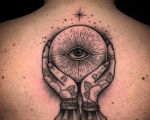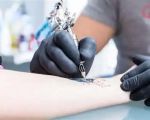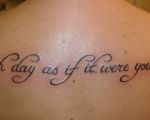Do Tattoo Shops Scan IDs? Understanding ID Verification in Tattoo Studios
If you're planning to get a tattoo, one of the first questions that may cross your mind is whether tattoo shops scan IDs. It's a common query, especially among first-timers. As a frequent tattoo-getter myself, I've encountered various situations and learned a lot about the policies that tattoo shops have in place, particularly regarding ID verification. In this article, I'll walk you through everything you need to know about ID scanning at tattoo shops and why it matters. Whether you're under 18 or just curious about the process, read on to gain a better understanding of this important aspect of getting a tattoo.
Why Do Tattoo Shops Scan IDs?
Tattoo shops are required by law to ensure that they don't tattoo minors. This is the primary reason that tattoo shops ask to see a valid ID before performing a tattoo. The age restriction for tattoos varies by state, but in most places, the legal minimum age is 18. Scanning IDs ensures that tattoo shops comply with these laws and regulations. Beyond age verification, some shops also scan IDs to verify the authenticity of the identification to prevent fraud. It's a way for the shop to protect both you and themselves legally.
Legal Requirements for Tattoos
Each state in the U.S. has its own laws regarding the minimum age for tattoos. In many states, you must be at least 18 years old to get a tattoo without parental consent. If you're under 18, most shops will require parental consent or deny service altogether. The role of ID scanning here is not just to verify your age but also to ensure that the ID you present is legitimate. Fake IDs are unfortunately a reality, and tattoo shops take precautions to avoid any potential legal issues.
What Types of IDs Do Tattoo Shops Accept?
When you show your ID at a tattoo shop, the most common forms of identification that are accepted include driver’s licenses, state-issued ID cards, and passports. Most shops will not accept expired IDs or temporary paper IDs, as they cannot verify the validity of the information. It's always a good idea to ensure that your ID is valid before going to a tattoo shop. Some shops may also ask for a second form of ID if there are any doubts about the one you're presenting.
Common Forms of ID Accepted by Tattoo Shops
- Driver’s license
- State-issued identification card
- Passport
- Military ID
How Does the ID Scanning Process Work?
In some modern tattoo shops, the process of ID verification goes beyond just checking the details manually. Some shops have digital systems that scan your ID to quickly verify the information. This can include reading the barcode on a driver’s license or scanning the chip in a passport. The digital process can help tattoo shops verify the authenticity of the ID much faster than checking it manually. However, not all tattoo shops use such technology, so in most cases, a staff member will simply inspect your ID visually.
The Benefits of Digital ID Scanning
Digital ID scanning has several advantages for both the customer and the shop. For customers, it provides a faster and more efficient way to verify their identity. For tattoo shops, it helps ensure that the ID is not fake and that the customer is the one they claim to be. Digital scanning also helps the shop keep a record of the ID verification for legal and compliance purposes. This can be important if any issues arise later on, such as disputes over age verification.
What Happens If You Don't Have a Valid ID?
If you arrive at a tattoo shop without a valid ID, most shops will simply refuse to perform the tattoo. Some shops may make exceptions if you have a temporary ID (like a replacement card) or if you're underage but have parental consent, depending on the state’s laws. However, the majority of shops are strict about this rule, as it’s part of their responsibility to comply with local regulations. Make sure you check your ID before you go to ensure a smooth experience.
What Are the Risks of Fake IDs in Tattoo Shops?
As mentioned earlier, tattoo shops take the verification of IDs seriously because they don't want to risk tattooing someone who is underage. Fake IDs are illegal, and using one in a tattoo shop could result in serious consequences. Some shops even report fake ID usage to the authorities, as it’s a criminal offense to provide false information to a business. It's important to always bring a legitimate form of ID to avoid any problems.
Can Tattoo Shops Refuse Service for Other Reasons Related to ID?
While the primary reason for scanning IDs is age verification, there are other situations in which tattoo shops might refuse service. If the shop suspects that the ID is fake, they have the right to deny service. Additionally, if a person is intoxicated or under the influence of drugs, many shops will refuse to perform a tattoo. This is for the safety of the client and the tattoo artist, as it’s important to ensure that the client is in a stable state of mind before getting inked.
Conclusion
In conclusion, yes, tattoo shops do scan IDs to verify your age and identity. It’s an essential practice to ensure that tattoo studios comply with legal requirements and avoid any issues with minors or fake IDs. Whether you’re planning your first tattoo or just curious about the process, understanding the importance of ID verification can help you prepare for a smooth experience. So, next time you head to a tattoo shop, make sure your ID is in good shape, and be ready for a fun and safe tattoo session!








